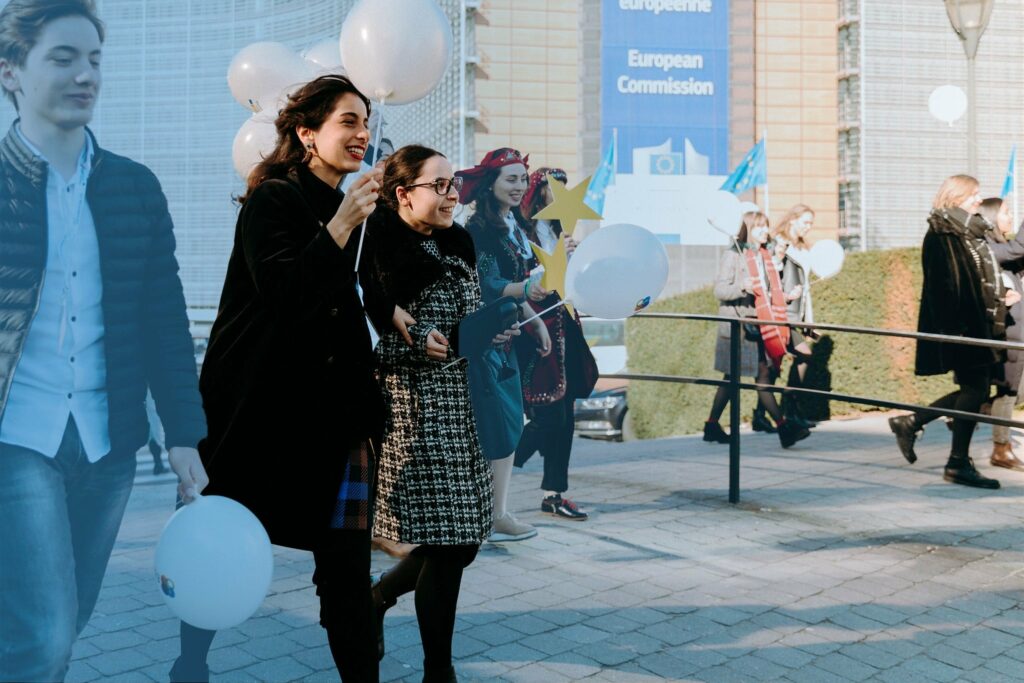
Why it is important for the Eastern Partnership countries to know about each others’ cultures?
The article is about why it is important for the European Union’s Eastern Partner countries’ citizens (Armenia, Azerbaijan, Belarus, Georgia, Moldova, Ukraine) to know more about each others’ cultures.
 Photo: European Union
Photo: European Union
First of all, it should be mentioned that when getting acquainted with a culture, mental connections are found, common features are revealed, relationships are developed at the community level, which leads to the development of social relations and the establishment of strong connections. Bringing people closer together at the individual level brings nations closer together, and bringing nations closer together has many benefits, such as solving common problems or making up for deficiencies. For example, if one culture lacks something it can take something valuable from another culture and complement and develop it in a good way. The rapprochement of individuals leads to the rapprochement of nations and the proximity of nations gives rise to such strong connections as solid economic, social and political connections. Al high political-social connections are developed from elementary needs at the level of nations.
EU’s Eastern neighbours are based on their common Soviet past experiences. That is why they know each others’ culture, they can find similarities and differences with each other. The cultural rapprochement of these countries contributes to the deepening of their connections in the political arena, for example, we can compare the cultural relations between Georgia and Ukraine. Culture encompasses a very wide range of public life, culture starting from conversation, continuing with art, and even ending with the institution of the family. Georgia and Ukraine have cultural similarities as well as cultural differences, which make each culture special and outstanding. There are also similarities such as hospitality in Georgia and Ukraine.
It is a well-known fact that Ukrainians used to greet their guests with bread and salt, with something very precious in old times. Salt-white gold, the hardest to obtain, in the Middle Ages, was obtained from the Far East-China, at a great labor cost, and bread is a means of subsistence. The guest was greeted with the most precious and hard-earned thing for them. With the hard-to-find material and resource allocation they thus show the greatest respect toward their guests.
In Georgia, there is an expression “the guest is sent from God”. The visitor is equaled to an apostle of God, sent by the Lord to a man to be cared for and fed. There is a well-known Georgian literature about the guest called “Stumar-maspindzeli”, translated as a “guest-host” by a famous Georgian writer Vazha Pshavela, where the tells a story of how carefully the guest should be treated in Georgia.
According to all these mentioned above, it should be figured out that the knowledge of each others’ cultures leads to trust between nations, that in its turn increases mutual understanding and strengthens economic ties. It all builds stronger countries, leading to political and social prosperity.
LATEST

How you can help the planet every day

Building Europe: Poland’s experience of joining the European Union and lessons for Ukraine

World Health Day 2024: My Health, My Right

EUREKA MEETS EUROPE – opportunities to develop and study. My experience

Can you wear pink in the workplace?
More campaign pages:
Interested in the latest news and opportunities?
This website is managed by the EU-funded Regional Communication Programme for the Eastern Neighbourhood ('EU NEIGHBOURS east’), which complements and supports the communication of the Delegations of the European Union in the Eastern partner countries, and works under the guidance of the European Commission’s Directorate-General for Neighbourhood Policy and Enlargement Negotiations, and the European External Action Service. EU NEIGHBOURS east is implemented by a GOPA PACE-led consortium. It is part of the larger Neighbourhood Communication Programme (2020-2024) for the EU's Eastern and Southern Neighbourhood, which also includes 'EU NEIGHBOURS south’ project that runs the EU Neighbours portal.

The information on this site is subject to a Disclaimer and Protection of personal data. © European Union,